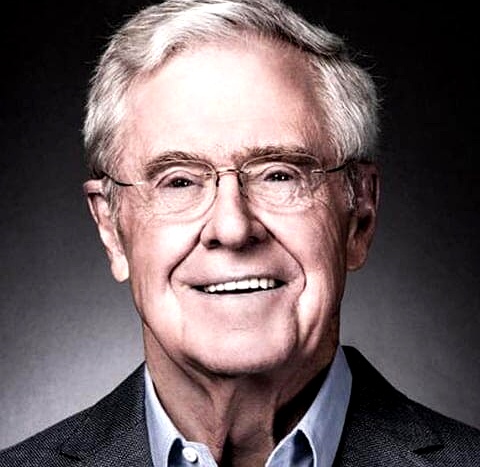Charles Koch's Book Recommendations
Charles Koch is an American businessman and philanthropist, best known as the Chairman and CEO of Koch Industries, one of the largest privately held companies in the world. Beyond his business acumen, Koch has made significant contributions to literature, particularly in the field of economics and management. His book "The Science of Success" outlines his philosophy of Market-Based Management, a framework for business success that has influenced many entrepreneurs. Additionally, his co-authored work "Good Profit" delves into creating value for society through principled entrepreneurship. Koch's writings emphasize the importance of innovation, free markets, and a principled approach to business.

Start Listening to Book Summary
Books in the Collection
Book Summaries
The Politics Industry Book Summary
In 'The Politics Industry', authors Katherine M. Gehl and Michael E. Porter unveil the surprising dynamics of the political landscape, likening it to a competitive industry. They argue that political competition is stifled by a two-party system that hampers innovation and responsiveness to citizens' needs. Through compelling research and case studies, the authors illustrate how this industry structure fosters inefficiency and polarization. Gehl and Porter propose a revolutionary framework for reform that could empower voters and reinvigorate democracy. What if the future of politics was not only about leadership but also about rethinking the very system that shapes our choices?
Human Action Book Summary
In 'Human Action', Ludwig Von Mises presents a groundbreaking analysis of the intricacies of human decision-making and economic behavior. He argues that economics is fundamentally about individual choices, and every action is a purposeful endeavor towards achieving one's goals. Mises delves into the philosophical underpinnings of social phenomena, challenging prevalent misconceptions about government intervention and free markets. With a blend of rigorous logic and insightful examples, the book lays the foundation for understanding the principles of praxeology—the study of human action. Readers are invited to explore a profound perspective that connects personal aspirations with broader economic realities.
Personal Knowledge Book Summary
In 'Personal Knowledge', Michael Polanyi explores the intricate nature of knowledge and how it is fundamentally tied to personal experience and tacit understanding. He argues that knowing is not merely about data and facts, but about the rich, subjective context in which we interpret our experiences. Polanyi challenges prevailing notions of objectivity in science, suggesting that personal engagement and hunches play crucial roles in discovery and innovation. Through compelling examples, he illustrates that knowledge is inherently a personal affair, filled with passions and commitments. This thought-provoking work invites readers to reconsider what it means to truly know something.
Frames of Mind Book Summary
In 'Frames of Mind', Howard Gardner revolutionizes the understanding of intelligence by introducing his groundbreaking theory of multiple intelligences. He challenges the traditional view of a singular intelligence, highlighting the diverse ways individuals think, learn, and express their gifts. From linguistic prowess to musical abilities and interpersonal skills, Gardner's insights open new avenues for education and personal development. Readers will discover how this paradigm shift can influence teaching, parenting, and self-discovery. Prepare to rethink what it means to be intelligent!









